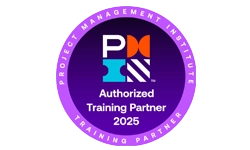
- Overview
- Curriculum
- Feature
- Contact
- FAQs
Building Strategic Influence in Matrix Organizations
About PMP Certification Training
The Project Management Professional (PMP) is the most sought-after industry-recognized certification for project managers. PMP Certification allows project managers to work virtually across various industries, anywhere in the world.
The training course is developed by active practitioners and experts, and then reviewed by the project management community before it is released, to assure it always reflects the current state of the profession. Organizations are now focused on developing leadership, negotiation, and conflict resolution skills alongside traditional IT and technical skills. We provide the latest training catered to the industry requirement of professionals having the right skills, via our globally-recognized certification.
Project Management Professional (PMP) Course Objectives
The objective of the workshop is to enable participants to get a basic understanding of project management methodology and processes. The workshop covers intermediate to advanced concepts of project management with special focus on project-related critical tasks, activities, and challenges faced by a project manager in day-to-day work life. This workshop is aligned with the latest PMBOK Guide (7th Edition) and helps prepare for the latest curriculum of the PMP certification. Besides covering certification content, this program also offers practical insights into real-world project management challenges, industry-best tools and processes, and the best practices followed.
What does PMP Certification Training offer?
Project Management has evolved significantly.
This is an online training program consisting of various project management training modules. The PMP training covers a wide range of topics. The training course takes you through the differences between project management and operations management. The PMP Certification Training has been designed to enable the managers/professionals to manage projects in a more efficient and effective manner with the help of the Project Management Life Cycle.
PMP is a registered trademark of Project Management Institute, Inc.


Why You Shouldn’t Miss this course
- What skills will you learn from PMP Training? By the end of the PMP Exam Preparation Training, the trainee will be able to understand the basic characteristics of a project, and also what project management means. The training also enables you to get an idea of Strategic Management in the Project Management office. Understanding the Project Management Life Cycle is also a part of this training program. Influence of multiple factors on a project, and learning various processes and their interactions common to project management are additional topics covered during PMP Training.
- Who should take PMP Training and what does it require?
Cognixia’s PMP Certification Training is best suited for professionals employed as Team Leaders or Project Managers. Professionals and students who aspire to make a career as Project Managers can also benefit a great deal from this training.
- Graduate Minimum of 4,500 hours of project management experience, during the last 8 consecutive years, covering the 5 process groups, if the candidate holds a university degree at the time of the application.
- Diploma Minimum of 7,500 hours of project management experience, during the last 8 consecutive years, covering the 5 process groups, if the candidate holds a high school diploma or equivalent secondary school credential at the time of the application.
Structured for Strategic Application
Strategic Leadership Themes
Designed for Immediate Organizational Impact
Includes real-world simulations, stakeholder tools, and influence models tailored for complex organizations.
Frequently Asked Questions
Find details on duration, delivery formats, customization options, and post-program reinforcement.



